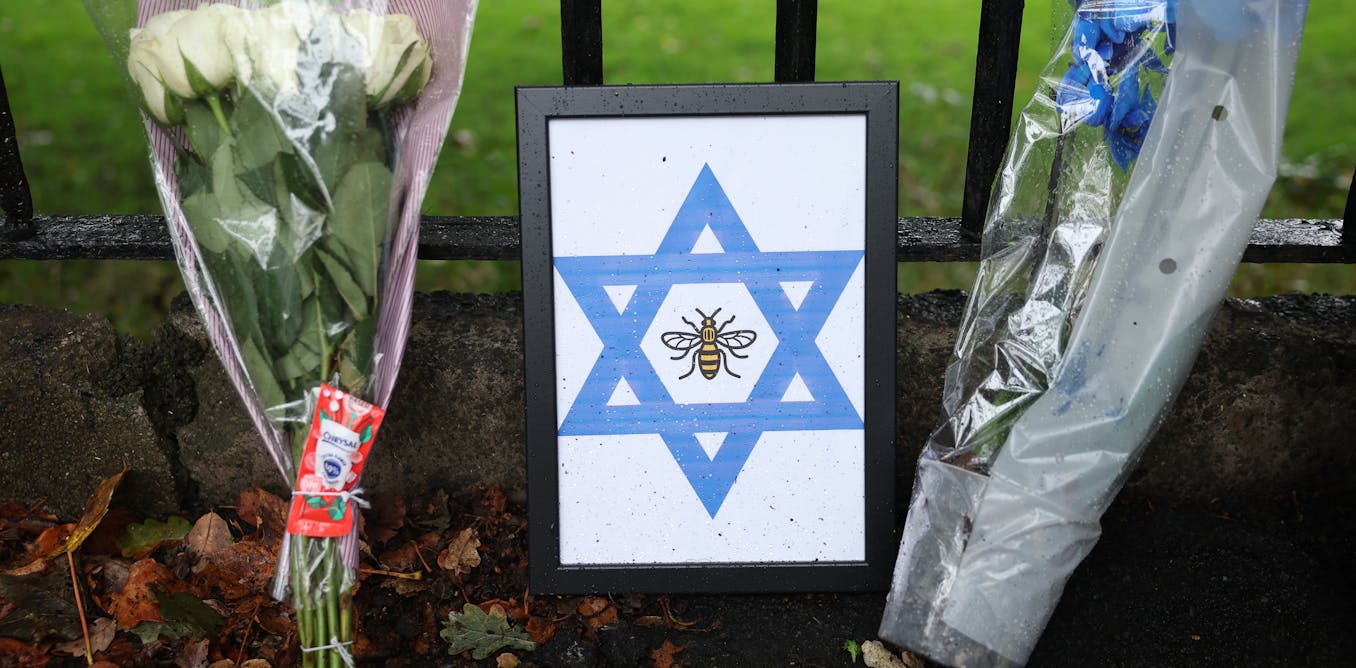Lifestyle
Manchester Synagogue Attack: Tragedy Strikes on Yom Kippur

A tragic attack on the Heaton Park synagogue in Manchester on October 2, 2025, has left two members of the local Jewish community dead and several others seriously injured. This incident occurred on Yom Kippur, the holiest day in the Jewish calendar, shocking both local and national Jewish communities. The attack has prompted widespread condemnation and raised concerns about the resurgence of antisemitism in the UK.
Tony Kushner, a researcher with over 40 years of experience in studying antisemitism in the UK, reflects on the historical context surrounding this act of violence. Kushner, a lifelong Mancunian Jew, emphasizes the complexity of understanding a tragedy that has deeply affected his community. Although he has spent much of his life away from Manchester, his roots trace back to the area surrounding the synagogue, where his parents first settled in the 1950s.
Historical Context of Manchester Jewry
Manchester’s Jewish community has a rich and complex history. The first Jewish settlers arrived in the late 18th century, primarily of German origin, and their numbers grew significantly over the years. By the 1870s, the Jewish population had reached approximately 4,000, with many coming from Eastern Europe. This migration intensified until 1914, when the community swelled to around 25,000.
The Heaton Park synagogue itself was established in 1935 and relocated to its current site in 1967, reflecting the community’s growth and suburbanisation. Today, Manchester is one of the few Jewish communities in the UK that is increasing in size, with the 2021 census reporting around 28,000 residents, a 12% rise over the previous decade. The community’s diversity is evident in its various religious practices and cultural origins, including a significant Haredi population.
Despite its historical significance, the community has faced challenges. Antisemitism has occasionally flared in Manchester, often manifesting in both verbal attacks and more violent incidents. During the late 19th century, local publications displayed blatant antisemitic sentiments, referring to Jewish immigrants as “an invading force.” In contrast, some media outlets, such as the Manchester Guardian, defended the contributions of Jewish refugees to the city.
The Impact of Antisemitism
The most severe antisemitic incidents in Manchester’s history include the riots of 1947, which occurred in response to right-wing extremist violence against British soldiers in Palestine. This tumultuous period saw attacks primarily targeting Jewish property, leaving deep scars on a community already grappling with the aftermath of the Holocaust.
The recent attack on the Heaton Park synagogue has ignited discussions about the state of antisemitism in contemporary society. Even as Manchester prides itself on its cosmopolitanism and tolerance, the reality is more complicated. Local leaders and members of the Muslim community have condemned the violence, emphasizing their commitment to unity in the face of attempts to divide.
In the wake of the Heaton Park attack, the community has demonstrated resilience. Past acts of terrorism, such as the IRA bombing in 1996 and the 2017 Manchester Arena attack, have prompted solidarity among residents. As one local expressed, “These people are sent to divide us, but they won’t.”
Tony Kushner, in his reflections, underscores the importance of understanding Manchester’s Jewish history within the broader narrative of antisemitism in the UK. He notes that the horror of the recent attack does not fit neatly into previous patterns of antisemitism, suggesting a need for deeper examination of the factors at play.
As Manchester grapples with the aftermath of this tragedy, the strength of its Jewish community and its commitment to diversity will play a crucial role in shaping the response to this act of violence. The hope remains that through unity and understanding, the community can move forward from this painful chapter in its history.
-

 World4 months ago
World4 months agoTest Your Knowledge: Take the Herald’s Afternoon Quiz Today
-

 Sports4 months ago
Sports4 months agoPM Faces Backlash from Fans During Netball Trophy Ceremony
-

 Lifestyle4 months ago
Lifestyle4 months agoDunedin Designers Win Top Award at Hokonui Fashion Event
-

 Entertainment4 months ago
Entertainment4 months agoExperience the Excitement of ‘Chief of War’ in Oʻahu
-

 Sports4 months ago
Sports4 months agoLiam Lawson Launches New Era for Racing Bulls with Strong Start
-

 World5 months ago
World5 months agoCoalition Forms to Preserve Māori Wards in Hawke’s Bay
-

 Health4 months ago
Health4 months agoWalking Faster Offers Major Health Benefits for Older Adults
-

 Lifestyle4 months ago
Lifestyle4 months agoDisney Fan Reveals Dress Code Tips for Park Visitors
-

 Politics4 months ago
Politics4 months agoScots Rally with Humor and Music to Protest Trump’s Visit
-

 Top Stories5 months ago
Top Stories5 months agoUK and India Finalize Trade Deal to Boost Economic Ties
-

 Health2 months ago
Health2 months agoRadio Host Jay-Jay Feeney’s Partner Secures Visa to Stay in NZ
-

 World5 months ago
World5 months agoHuntly Begins Water Pipe Flushing to Resolve Brown Water Issue









